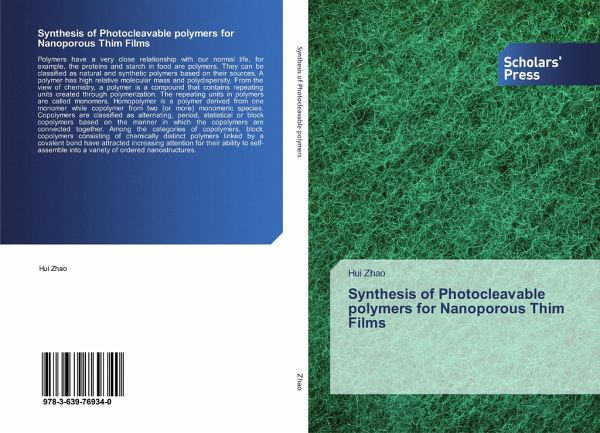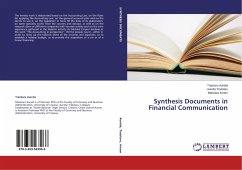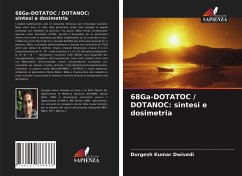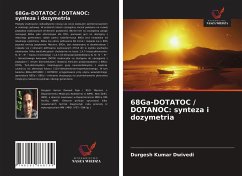
Synthesis of Photocleavable polymers for Nanoporous Thim Films
Versandkostenfrei!
Versandfertig in 6-10 Tagen
45,99 €
inkl. MwSt.

PAYBACK Punkte
23 °P sammeln!
Polymers have a very close relationship with our normal life, for example, the proteins and starch in food are polymers. They can be classified as natural and synthetic polymers based on their sources. A polymer has high relative molecular mass and polydispersity. From the view of chemistry, a polymer is a compound that contains repeating units created through polymerization. The repeating units in polymers are called monomers. Homopolymer is a polymer derived from one monomer while copolymer from two (or more) monomeric species. Copolymers are classified as alternating, period, statistical or...
Polymers have a very close relationship with our normal life, for example, the proteins and starch in food are polymers. They can be classified as natural and synthetic polymers based on their sources. A polymer has high relative molecular mass and polydispersity. From the view of chemistry, a polymer is a compound that contains repeating units created through polymerization. The repeating units in polymers are called monomers. Homopolymer is a polymer derived from one monomer while copolymer from two (or more) monomeric species. Copolymers are classified as alternating, period, statistical or block copolymers based on the manner in which the copolymers are connected together. Among the categories of copolymers, block copolymers consisting of chemically distinct polymers linked by a covalent bond have attracted increasing attention for their ability to self-assemble into a variety of ordered nanostructures.












